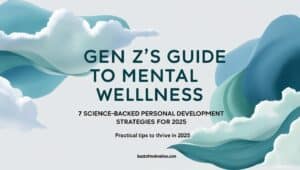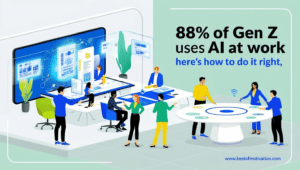According to popular belief, Generation Z, often referred to as Gen Z, encompasses individuals born between the late 1990s and early 2010s. Understanding this age range is crucial in various contexts, such as marketing, education, and societal trends. With their unique characteristics and digital proficiency, Gen Zers are reshaping norms and expectations, influencing markets and shaping the future landscape. Grasping their age range is paramount to effectively engage and connect with this generation in today’s rapidly evolving world.
Defining Generation Z
Generation Z, born between the mid-1990s and early 2010s, is characterized by a unique set of traits and behaviors that set them apart from previous generations, influenced significantly by the digital landscape they were born into.
Digital Natives
Growing up in a world immersed in technology, Generation Z is considered true digital natives. This generation effortlessly navigates the digital sphere, with smartphones, social media platforms, and instant communication being integral parts of their lives. The seamless integration of technology has not only shaped their communication style but has also influenced their preferences, behaviors, and even worldviews.
Socially Conscious
One prominent aspect that defines Generation Z is their strong inclination towards social consciousness and activism. This generation is notably vocal about social issues, from climate change to equality and human rights. With the power of social media at their fingertips, they leverage online platforms to advocate for change, raise awareness about pressing issues, and champion the causes they believe in.

Generation Z Age Range
Generation Z, often referred to as Gen Z, encompasses individuals born between the mid-to-late 1990s and the early 2010s. The exact birth years that define the Generation Z age group typically range from around 1997 to 2012. These years mark the period when significant technological advancements were unfolding, shaping the way Gen Z interacts with the world around them.
Birth Years
Generation Z is characterized by being digital natives, growing up in a world where smartphones, social media, and instant connectivity are the norm. Individuals born during these years have a unique perspective on technology, culture, and global issues. Understanding the birth years of Gen Z provides insights into their values, concerns, and aspirations.
Key Milestones
Key historical events and cultural shifts have profoundly influenced the upbringing of Generation Z. The aftermath of the 9/11 attacks, the global financial crisis, and the rise of social media platforms are just some of the pivotal moments that have shaped the worldview of Gen Z individuals. These events have instilled resilience, adaptability, and a strong sense of social consciousness in this generation.
Impact on Marketing Strategies
Understanding the Generation Z age range is fundamental in tailoring effective marketing strategies that resonate with this tech-savvy and digitally immersed cohort. This generation, born between the late 1990s and early 2010s, has a unique perspective on consumption and engagement, shaping the way businesses approach their marketing efforts.
Personalised Marketing
Personalized marketing has emerged as a key strategy to capture the attention of Generation Z consumers within their age range. This approach involves crafting individualized messages and experiences based on consumer data and preferences. By delivering tailored content, products, and offers, companies can establish a deeper connection with Gen Z, who value authenticity and personalization in their interactions with brands. This personalized approach not only increases engagement but also cultivates loyalty among this demographic.

Digital Engagement
Digital platforms play a crucial role in engaging with Generation Z effectively. This age group is constantly connected through various online channels, making digital marketing a primary avenue for reaching them. Social media, influencer partnerships, and interactive content are powerful tools for engaging Gen Z consumers and capturing their interest. By leveraging the latest digital trends and technologies, businesses can create immersive experiences that resonate with the values and preferences of this tech-native generation.
In a world where attention spans are short and competition for consumer engagement is fierce, understanding the Z generation age range is paramount for businesses looking to craft impactful marketing strategies. By embracing personalization and digital engagement, companies can connect with Gen Z on a deeper level and drive meaningful interactions that translate into long-term brand loyalty and advocacy.
Educational Implications
Education for Generation Z individuals, within the specified age range, is closely entwined with technology integration. In today’s world, classrooms have transformed into digital hubs where learning occurs hand in hand with technological advancements. Embracing technology in education not only enhances the learning experience but also equips students with vital digital skills for the future.
Technology Integration
In the modern educational landscape, technology has become a cornerstone of learning for Generation Z students. Integrating tools like tablets, educational apps, and interactive software can make lessons more engaging and interactive. By leveraging technology, educators can create dynamic learning environments that cater to the digital nativity of Generation Z, providing them with practical skills and preparing them for a tech-driven future.

Adaptability in Teaching
To effectively teach Generation Z students, educators need to be adaptable in their teaching styles. These individuals thrive in collaborative and interactive settings where they can actively participate in their learning process. By embracing adaptable teaching methods such as project-based learning, gamification, and multimedia-rich content, teachers can better engage Generation Z students and cater to their diverse learning preferences. Flexibility and innovation in teaching are key to maximizing the educational potential of Generation Z individuals.
Conclusion
Understanding the Z generation age range is crucial in today’s society. It impacts everything from marketing strategies to educational approaches. By recognizing the age range of Gen Z, businesses can tailor their products and services to better appeal to this tech-savvy and socially conscious demographic. Moreover, educators can adjust their teaching methods to cater to the unique learning preferences of Gen Z individuals, ensuring a more effective and engaging educational experience. In essence, knowing the Z generation age range is not just about demographics; it’s about adapting to a generation that is shaping the future of our society.
Related Links:









